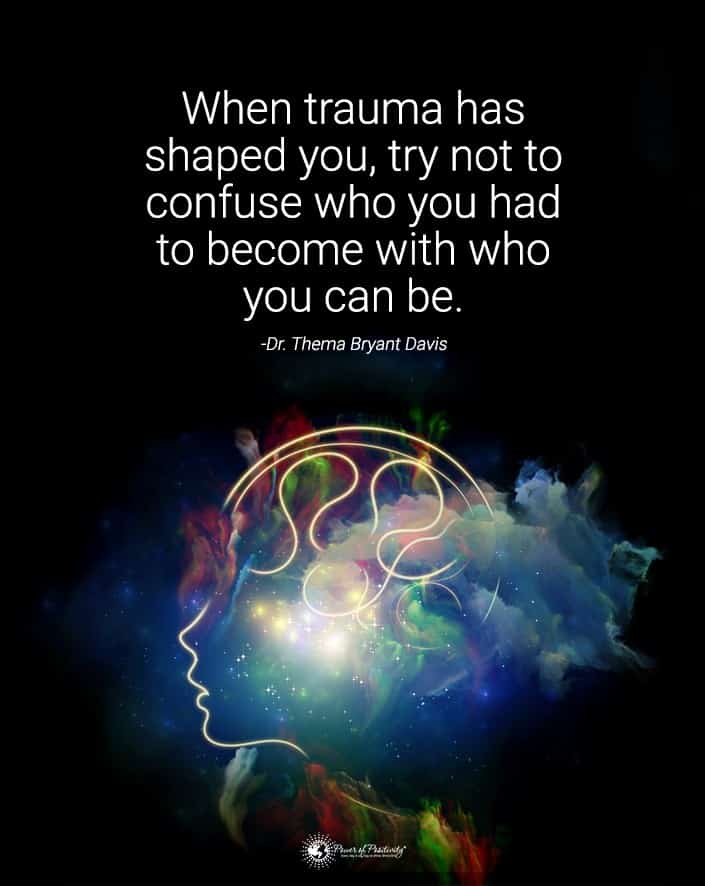There’s a reason trauma therapy exists today. There are many reasons why people may struggle with mental health issues. Some individuals may have a genetic predisposition to certain mental health conditions. Others may develop mental health issues due to traumatic experiences, chronic stress, or other life events. And here is where trauma therapy can come in handy, as it can be used to manage mental health issues.
Trauma can be a significant factor in the development of mental health issues. It can cause individuals to experience long-term emotional and psychological distress. Trauma can also lead to the development of conditions such as post-traumatic stress disorder (PTSD), anxiety, and depression.
Stressful life events, such as losing a loved one, a job loss, or a relationship breakup, can also contribute to mental health issues. Chronic stress, in particular, can take a toll on an individual’s emotional and physical well-being and lead to conditions such as anxiety and depression. Additional factors such as poverty, social isolation, lack of access to mental health services, and discrimination can make it more difficult for people to manage their mental health.
What is Trauma Therapy?
Trauma is a deeply distressing or disturbing event that impacts an individual’s mental and emotional well-being. Examples of traumatic events include physical or sexual abuse, combat, natural disasters, accidents, and losing a loved one. These are just a few examples, as other events result in significant emotional distress.
Trauma can manifest in various ways, such as anxiety, depression, post-traumatic stress disorder (PTSD), phobias, and other mental health conditions. Trauma can also affect individuals physically, such as chronic pain, headaches, and other somatic symptoms. People who have experienced trauma may also have difficulty with trust, intimacy, and other interpersonal relationships.
Trauma therapy is a form of treatment that helps individuals process and recover from traumatic events. Trauma therapy is a form of psychological treatment designed to help individuals who have experienced traumatic events. These events are physical or sexual abuse, natural disasters, or combat. The goal is to help individuals cope with trauma reactions and work through any lingering emotional or psychological effects.
Plus, it aims to reduce symptoms such as anxiety, depression, and post-traumatic stress disorder (PTSD). Trauma therapy may include cognitive-behavioral therapy (CBT), eye movement desensitization and reprocessing (EMDR), and talk therapy. Working with a trained and licensed therapist with trauma experience is essential.
Understanding Cognitive Behavioral Therapy
The most popular type of trauma therapy is Cognitive Behavioral Therapy (CBT). Cognitive Behavioral Therapy is a form of psychotherapy that aims to help individuals change negative thinking and behavior patterns. It is based on the idea that our thoughts, feelings, and behaviors are interconnected and that we can change how we feel and behave by changing how we think.
CBT typically focuses on the present rather than the past and aims to help individuals identify and challenge negative thoughts and beliefs contributing to their distress. The therapist and the patient work together to develop coping strategies to help the patient manage negative thoughts and emotions.
CBT is widely used to treat various mental health conditions, including anxiety, depression, post-traumatic stress disorder (PTSD), eating disorders, and substance abuse. It is considered an evidence-based treatment, which is effective in multiple studies. In addition, CBT can be delivered in various settings, such as individual, group, or online therapy.
5 Ways Trauma Therapy Can Improve Mental Health
1. It Helps Process Traumatic Memories
One of the main goals of trauma therapy is to help individuals process traumatic memories. Trauma can cause memories of the event to be stored in the brain in an unprocessed form, leading to emotional and psychological distress. Trauma therapy can help individuals process these memories and make sense of them, reducing their distress and improving overall mental health.
The specific method of processing traumatic memories can vary depending on the type of trauma therapy. For example, in cognitive-behavioral therapy, the therapist may work with the individual to identify and challenge negative thoughts and beliefs related to the traumatic event. In EDMR therapy, the therapist may use eye movements or other stimuli to help the individual process the traumatic memories.
In somatic therapies, the therapist may help the individual focus on the body’s physical sensations while thinking about the traumatic event. Processing traumatic memories can be a complex and emotional process. With the guidance of a trained therapist, individuals can work through their memories and gain a greater understanding of how the trauma has affected them. This can be an essential step in healing and improving overall mental health.
2. Trauma Therapy Helps Reduce Symptoms of PTSD
Trauma therapy can be effective in reducing symptoms of PTSD. PTSD is a mental health condition that can develop after individual experiences or witnesses a traumatic event. Symptoms of PTSD include flashbacks, nightmares, avoidance behaviors, and feelings of anxiety and distress. Trauma therapy can help individuals with PTSD to process their traumatic memories and make sense of the event.
This can reduce the distress associated with the memories and improve the individual’s ability to function in daily life. CBT is one type of trauma therapy that can be particularly effective in reducing symptoms of PTSD. In addition, CBT can help individuals identify and challenge negative thoughts and beliefs related to the traumatic event and develop coping mechanisms for managing symptoms of anxiety and depression.
EDMR is another type of trauma therapy that can be effective in reducing symptoms of PTSD. EMDR uses eye movements or other stimuli to help individuals process traumatic memories and reduce the distress associated with the memories.
3. It Improves Your Coping Mechanisms
Coping skills are fundamental, yet many people lack them. Trauma therapy can help individuals develop effective coping mechanisms for dealing with the effects of trauma. Trauma can have a significant impact on an individual’s mental and emotional well-being and can lead to feelings of anxiety, depression, and stress. Coping mechanisms are strategies that can help individuals manage these feelings and improve their overall mental health.
In CBT, the therapist may work with the individual to identify and challenge negative thoughts and beliefs related to the traumatic event. The therapist may also teach the individual relaxation techniques, mindfulness practices, and other strategies for managing symptoms of anxiety and depression.
EDMR therapy also focuses on coping mechanisms by helping an individual to process traumatic memories and develop healthier ways of coping with distress. Somatic therapies, such as yoga, mindfulness, and body-based therapies, can also be helpful in trauma therapy. They provide individuals with physical and mental techniques to manage emotions and reduce trauma symptoms.
Coping mechanisms will vary from person to person and will depend on the individual’s specific needs. A therapist trained in trauma therapy can help individuals develop coping mechanisms that are tailored to their unique needs and can be most effective in assisting them in managing the effects of trauma.
4. Trauma Therapy Enhances Your Relationships
Trauma can affect an individual’s ability to trust and form healthy relationships. It can cause individuals to feel emotionally distant or to have difficulty with intimacy and vulnerability. Trauma therapy can help individuals work through trust issues and learn how to communicate effectively with others.
It can help individuals understand how the trauma has affected their relationships and develop healthier ways of interacting with others. Emotionally Focused Therapy (EFT) and couples therapy can also enhance relationships. They focus on helping couples understand and process their emotions and develop more effective communication methods.
Healing from trauma is a process, and it takes time. Trauma therapy can help individuals work through trust issues and develop healthier ways of interacting with others. Still, it may take time for the individual to heal and for relationships to improve. A therapist trained in trauma therapy can help individuals understand the process and support them in enhancing their relationships.
5. It Promotes Growth
Trauma therapy can promote self-awareness and personal growth. Trauma therapy can help individuals better understand themselves and how their experiences have affected them. This self-awareness can lead to personal growth and help individuals develop a more positive sense of self. In addition, CBT and other talk therapy can help individuals understand the connection between their thoughts, feelings, and behaviors and how trauma affects them.
This understanding can help them change negative thinking patterns and behavior and develop a positive self-image. EDMR therapy can help individuals process traumatic memories, leading to a greater understanding of how the trauma has affected them. This understanding can help individuals progress and develop a more positive self-image.
Personal growth is a process, and it takes time. Trauma therapy can help individuals better understand themselves and how they have been affected by the trauma. Still, it may take time for the individual to heal and for personal growth to occur. A therapist trained in trauma therapy can help individuals understand the process and support them in promoting self-awareness and personal growth.
Final Thoughts on Ways Trauma Therapy Can Improve Mental Health
Trauma therapy is a form of treatment that helps individuals process and recover from traumatic events. It aims to help individuals understand and cope with their reactions to the trauma and to work through any lingering emotional or psychological effects. There are several different types of trauma therapy, including cognitive-behavioral therapy, eye movement desensitization and reprocessing (EMDR), talk therapy, and somatic therapies.
Each type of therapy may be more appropriate for different individuals, depending on the nature of their trauma and their specific needs. Trauma therapy can effectively reduce symptoms of post-traumatic stress disorder (PTSD) and other mental health conditions that can result from traumatic experiences. It can help individuals develop effective coping mechanisms for dealing with the effects of trauma, enhance relationships, and promote self-awareness and personal growth.
The benefits can vary depending on the individual, the type of therapy, and the therapist. It’s essential to work with a therapist who is experienced and trained in trauma therapy and understands your unique needs. Trauma therapy can be a challenging process. But with the guidance of a trained therapist, individuals can work through their traumatic experiences and improve their overall mental health.

















 Community
Community

